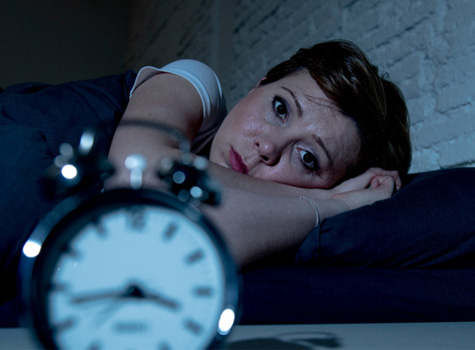What Are Sleep Disorders? – Dallas, TX
Why You’re Not Getting the Sleep You Need
The term ‘sleep disorder’ refers to a condition that affects a person’s sleep quality, timing, or duration. In addition to their effect on sleep, these disorders impact a person’s ability to effectively function while awake and can contribute to other physical and mental medical problems.
Since the American Sleep Disorders Association published the first classification system of disordered sleeping in 1979, over 100 sleep disorders have been discovered and diagnosed. While a complex classification system is utilized to identify a sleep disorder and classify the disorder among the many types, there are four characterizations that most disorders share:
- You have trouble falling or remaining asleep
- You find it difficult to stay awake during the day
- Imbalances to your circadian rhythm are interfering with your sleep schedule
- You are prone to unusual behaviors that disrupt your sleep
Meet Our Team
At Sleep Dallas, it is our goal to provide the necessary services to help you start sleeping better. This can include addressing weight loss and nutrition, psychological disorders, and of course, sleep apnea and other common sleep disorders. To do this, we are pleased to have Dr. Karla Austin provide essential diagnostic and comprehensive treatment to address the issues associated with various sleep disorders in Dallas.
Dr. Karla Austin is a licensed psychologist with more than 35 years of experience in the field. With a Ph.D. in counseling and psychology, she works to identify the underlying reasons why an individual struggles to achieve adequate sleep. This can be the result of anxiety, depression, caffeine intoxication, relationship issues, or an array of other mental, emotional, physical, and behavioral problems.
Insomnia
When struggling to fall asleep, you may attribute your lack of sleepiness to too much caffeine or having “too much on your mind,” but the reality is that it might be insomnia. This unique sleep disorder affects one in four people in the United States, and it can have negative consequences on your ability to function in day-to-day life. With the help of our Sleep Dallas team, however, we can recommend various solutions ranging from changes in your diet to relaxation therapy to help you get the sleep you need.
Insomnia develops in one of every four Americans each year, but despite its prevalence among the general population, insomnia in Dallas continues to be vastly underdiagnosed. As explained in a 2016 study, patients should be screened for insomnia consistently as they get older, as aging is commonly associated with insomnia symptoms. And while aging is a very broad risk factor, screening is important to diagnosing and tackling insomnia because 27% of individuals don’t even realize they have the condition. If you are struggling to fall asleep and want answers, call our office today to schedule an appointment with one of our Sleep Dallas experts.
What is Insomnia?

Insomnia is a type of sleep disorder that involves patients being unable to fall asleep or stay asleep. There are two types – short-term and chronic – that can result in chronic fatigue, daytime sleepiness, the inability to concentrate, and mood changes. With short-term insomnia, patients suffer symptoms for roughly three months with symptoms dissipating over time, but chronic insomnia can last for several years with symptoms occurring up to three times a week.
Symptoms of Insomnia

Insomnia can be experienced in three degrees of severity: mild, moderate, or severe. Insomniacs on the milder side of the spectrum may not experience a significant impact on their social functioning or work productivity, but as the severity increases, insomniacs can become crippled by the condition.
Mild insomniacs report receiving inconsistent sleep—they may get great sleep for a few days and then fall into a bout of restless sleep, which brings on the following symptoms:
- Restlessness
- Irritability
- Mild anxiety
- Daytime fatigue
- Consistent tiredness
For insomniacs who suffer from moderate or severe insomnia, the issue is obvious because they experience a significant impact on their personal and professional lives. Those with moderate to severe insomnia experience all of the above symptoms but to a more severe degree.
Moderate insomniacs report rarely experiencing a good night’s rest and can feel the impacts of sleep deprivation in all aspects of their lives.
Severe insomniacs may feel completely suffocated by this disorder. Apart from having trouble sleeping every night, they often experience noticeable differences in their ability to maintain relationships and stay on top of their work duties.
What Causes Insomnia?

This condition can be broken down into primary (acute) and secondary insomnia. Acute insomnia is often caused by a stressful event or relationship, a change in a person’s work schedule (i.e., night shift vs. day shifts), poor lighting or loud noises in a particular sleeping environment, or medications that are designed to treat depression, allergies, high blood pressure, or asthma. It’s also possible for individuals with poor lifestyle habits (i.e., too much caffeine, frequent alcohol consumption, or smoking) to develop acute insomnia.
Secondary insomnia, however, can often be attributed to an underlying medical condition such as depression, anxiety, chronic pain, stress, diabetes, and even cancer.
Consequences of Insomnia

Individuals who suffer from insomnia may think the only aspect of their lives being affected is their ability to achieve adequate sleep, but the reality is there are far more consequences surrounding this condition if left untreated.
Some of these include:
- The inability to react in a timely manner when driving
- Poor work or school performance
- The risk of developing mental health disorders such as anxiety, substance abuse addiction, and depression
- The potential for longer-lasting medical conditions that can wreak havoc on a person’s overall health and well-being
Not Sure if You Have Insomnia? Talk to the Sleep Dallas Team

Insomnia doesn’t have to be your normal. Sleep physicians can help. You can also find help by talking to Dr. Austin who is a licensed psychologist with more than 35 years of experience in the field. She can help you to work through any mental health issues you may be experiencing that result in poor sleep behaviors.
Diagnosing & Treating Insomnia

Diagnosing insomnia involves calling our Sleep Dallas office and scheduling an appointment. Dr. Austin will evaluate your symptoms to determine if you are suffering from any of the symptoms associated with insomnia. If a sleep study is necessary, one will be recommended; however, if one has already been completed, the next step is to identify the underlying cause(s) of your insomnia.
Once a reason has been identified, Dr. Austin will create a plan to help reduce and/or eliminate symptoms, helping you to get the sleep you need. Some effective treatment options include basic changes such as:
- Eliminating naps throughout the day
- Exercising earlier in the day
- Avoiding screens before bed (i.e., phones, televisions, tablets)
It can also mean discussing the potential use of herbal supplements to help improve sleep patterns. If more serious insomnia exists, our sleep experts near you might recommend:
- Relaxation Therapy, which means reducing stress and anxiety at night.
- Cognitive Therapy, which helps to eliminate negative thoughts as it pertains to sleep.
- Stimulus Control Therapy, which is the process of rethinking how you view your bedroom and its purpose for sleep.
No matter the type of therapy or treatment recommended, the process involves discussing your medical history, current medications, and lifestyle habits. Based on our findings, Dr. Austin will generate a comprehensive plan to target these issues and help you regain a better quality of life.
If you’re ready to take that next step to regain control of your sleep, click here to make your appointment.
Nocturia
If you are waking multiple times each time to use the bathroom, you might begin to wonder if you’re drinking too much liquid before bed. But what you may not realize is that you could be one of the 40 million Americans suffering from nocturia. Patients with nocturia deal with excessive urination at night, making it difficult to get a full night’s rest. With this comes chronic fatigue that can have devastating effects on your personal and professional life.
Restless Leg Syndrome
If you find that your legs feel as if they’re being pulled and it results in frequent movement, restless leg syndrome may be the cause. With RLS, you will likely notice an increase in severity at night, resulting in inadequate sleep. While the causes of RLS are many, genetics and your gender can have a significant impact on whether you develop problems, and treatment with a Sleep Dallas professional is necessary in order to achieve relief.
Shift Work Disorder
Shift work disorder is not commonly known but can be extremely dangerous if not treated. Individuals who are viewed as “shift workers,” or those who work nights or irregular shifts might develop insomnia or chronic fatigue that leads to negative cognitive functioning. If only 3-6 hours of sleep are achieved each night, shift work disorder can begin to manifest, resulting in a decline in work performance as well as the potential for car accidents due to extreme fatigue. By making various lifestyle changes and working with our team, we can help you develop positive and healthy habits that include restful sleep.
Parasomnias
Do you sleepwalk? Do you tend to talk in your sleep? If so, there is a good chance you might have what is called parasomnia. Common among many individuals throughout the U.S. population, parasomnia describes sleep disorders that result in abnormal behavior and frequently occur when the brain shifts from being asleep to being awake. It can also occur while completing a sleep cycle. A sleep specialist at Sleep Dallas can help to address your abnormal behavior and create positive sleep habits to limit the potential for parasomnia.
Narcolepsy
Narcolepsy is rare, but this neurological disorder affects nearly 200,000 people living in the United States. When suffering from narcolepsy, you are unable to remain awake throughout the day. Instead, you feel persistently sleepy and can quickly enter into a REM cycle without much notice. Affecting daily work, personal relationships, and social circles, proper diagnoses and treatment are essential to ensure optimal functionality each day.
REM Sleep Behavior Disorder
While a normal REM sleep cycle involves temporary paralysis of the body’s muscles, those with REM sleep behavior disorder do not experience the paralysis but instead, act out and speak their dreams while asleep. Although it is more commonly found in men, it is commonly linked to certain neurodegenerative disorders like Parkinson’s disease. Working with a licensed sleep specialist near you can help to minimize symptoms and create safer environments while you sleep.
Non-24-Hour Sleep-Wake Disorder
Maintaining a regular circadian rhythm is essential for good health and wellness. But if you suffer from non-24-hour sleep-wake disorder, you will find that your inability to fall asleep at night and remain awake throughout the day can have serious effects on your daily mood, awareness, and function. This can occur when the body is desynchronized, causing the circadian rhythm to fluctuate in such a way that it poses a threat to your overall well-being. By working with Sleep Dallas professionals, you will begin to develop positive sleep patterns that have lasting effects.
